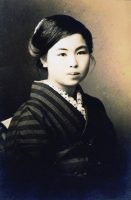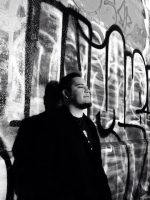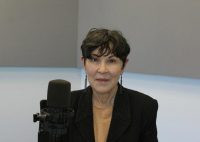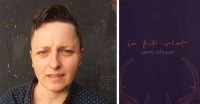November 30, 2017
Edited by David Sanders
Specimen Days
1554—Philip Sidney, England, poet/statesman/soldier (Arcadia), is born.
1813—Hermann Kurz, German author/poet, is born.
1813—Louise-Victorine Ackermann, French poet (d. 1890), is born.
1872—John McCrae, Canadian physician, soldier and poet (In Flanders Fields), born in Guelph, Ontario (d. 1918).
1909—Innokenti F Annenski, Russian poet/translator, dies at 53 [NS=Dec 13].
1919—Jan Elburg, [Joannes G], Dutch poet (Through the Night), is born.
1935—Fernando Pessoa, Portuguese poet and writer, dies at 47.
1947 Sergio Badilla Castillo, Chilean poet, is born.
2006—Elhadi Adam, Sudanese poet and lyricist (b. 1927), dies.

This is the centre of the galaxy I built with my own hands.
Hundred-year-old mice convinced they’re jaguars
fled from a library and live at this address.
To remake Paradise with the help of Darwin
won’t be easy in a single room.
Somebody will have to care for my sick mother
and with a caravan of gypsy acrobats
perhaps I’ll tap my feet before your door.
—from “The embers of a nebula” by Sergio Badilla Castillo,
trans. by Roger Hickin and the author
“This is the centre of the galaxy I built with my own hands.” – Sergio Badilla Castillo
World Poetry
Helen Dunmore's Final Poems Lead Shortlists for 2017 Costa Prizes

Helen Dunmore’s final poetry collection, in which the award-winning author contemplates her terminal cancer diagnosis and impending death, has been shortlisted for the Costa poetry award. The line-up for this year’s Costas, which set out to reward the year’s “most enjoyable” books across novels, first novels, biographies, poetry and children’s books, is female-heavy, with 14 women on the 20-strong list.
Poems in Dottyville: How Two Traumatized Soldiers Changed Notions of War
An imposing 19th Century building with elegant manicured lawns and sweeping views of the Edinburgh skyline seems an unlikely place to have earned the nickname “Dottyville” from one of Britain’s most revered poets. But Craiglockhart War Hospital, now part of an Edinburgh Napier University campus on the outskirts of the Scottish capital, was where traumatized souls took refuge from war and where Siegfried Sassoon and Wilfred Owen wrote about their terrifying experiences as part of treatment for shell-shock in 1917.
Helen Dunmore’s final poetry collection has been shortlisted for the Costa poetry award.
Recent Reviews
Vietnam’s Victims Take to the Page in ‘Inheriting the War’
by Elizabeth Lund
Inheriting the War: Poetry and Prose by Descendants of Vietnam Veterans and Refugees (W.W. Norton) gives voice to many still suffering from the legacy of the conflict in Vietnam. As Yusef Komunyakaa, Pulitzer Prize-winning poet and Vietnam veteran, writes in the foreword: “Whatever one witnessed in battle became a silence carried within. Soldiers are always dreaming themselves into the future as a way of getting beyond this, or moving forward.”
Are You An Echo: The Remarkable Story of the Forgotten Young Woman Who Became Japan’s Most Beloved Children’s Poet
by Maria Popova

In 1966, while leafing through an obscure book, a 19-year-old Japanese aspiring poet by the name of Setsuo Yazaki discovered a poem that stopped him up short with its staggering generosity of empathy and existential truth conferred with great simplicity.
When America's Greatest Poets Made Pilgrimages to Ezra Pound
by William L. Morris
This short work of critical nonfiction by Daniel Swift has more to say about Ezra Pound’s influence on Modernism than A. David Moody’s three-volume biography where every aspect of the poet’s life is given equal billing. “The Bug House” focuses on Pound’s 12 years of captivity in St. Elizabeths Hospital in Washington D.C. Even though Pound’s poetic output was slight during those years, it was a critical time due to his interactions with visitors. It is broken into chapters dealing with visit from poets, doctors and a young fascist named John Kasper.
It was in 1966 when Setsuo Yazaki lifted Japan’s most beloved children’s poet out of obscurity.
Broadsides
The Great American Poet of Daily Chores
How A. R. Ammons turned the mundane—garbage, boredom, his car not starting—into art.
by Dan Chiasson
react-text: 157 In November of 1963, A. R. Ammons, known to family and friends as Archie, the author of a single, privately printed book of poems and a manager at his father-in-law’s glass factory, picked up a roll of adding-machine tape at a local store and began to “contemplate . . . some fool use for it.” Back home, Ammons threaded the roll of tape into his Underwood typewriter and, beginning on December 6th, sat down to write a poem that recorded his daily impressions. The poem’s margins were set by the tape’s width, about two inches; it began where the tape started and ended when it ran out, with no chance for revisions as Ammons’s words slalomed down its length.
In Poet John Keats’ Letters, a Man Full of Life just before He Died
by Alison Thoet

Romantic poet John Keats is best known for his odes, epics and sonnets. But in his short lifetime he also wrote dozens of letters to siblings and friends, which are now surfacing together online for the first time, 200 years after they were written, though an effort called the The Keats Letters Project. Keats penned the letters between 1815 and 1821, the year he died, at the age of 25. In his letters, Keats wrote to his brothers George and Tom about daily life, discussed poetry with friend Benjamin Bailey and later expressed his love to the young Fanny Brawne.
Hart Crane’s View From the Bridge
by Langdon Hammer
Hart Crane conceived of his long poem, The Bridge, in the winter of 1923. He was twenty-three years old and working as a copywriter for a small advertising firm in Cleveland. Feverishly excited and (as was becoming usual) a little drunk, he wrote about his idea for the poem to his friend Gorham Munson.
John Keats’ letters are being collected online through an effort called The Keats Letter Project.
Drafts & Fragments
Johnathan Rice's Instagram Haikus Capture Our Modern World in 17 Syllables
by Eva Recinos

In 2017, the “Instagram poet” label seemed to reach a fever pitch, leading many to criticize the use of a social media platform as the antithesis of serious poetry. But the platform continues to be a powerful way for many poets to share their work with a wide audience. New among them: singer-songwriter Johnathan Rice.
A Harvard Professor Reviewed Taylor Swift's Poetry, and Long Story Short, Poetry is Hard af to Write
by Madison Vanderberg
Taylor Swift is a fine songwriter, but according to a Harvard English professor, poetry is where Swift struggles. Swift recently released her album Reputation and if you bought a physical copy of the album, it came with a magazine. The magazine included several handwritten poems, penned by Swift. Harvard professor Stephanie Burt, who has written books on the subject of poetry, analyzed Swift’s poems like she would any other work. The verdict: Well…let’s let Burt explain.
Singer-songwriter Johnathan Rice is the newest “Instagram poet” to break through to a wider audience.
Poetry In the News
Claudia Castro Luna Is Your New Washington State Poet Laureate

This morning Governor Jay Inslee passed on the state's laurels to Seattle's outgoing Civic Poet, Claudio Castro Luna. She'll assume the laureateship on Feb 1. 2018, following an official handoff ceremony at the central branch of the Seattle Public Library on January 31st. "We're really excited to have Claudia taking over this position," said Tod Marshall, the state's current poet laureate. "She’s experienced at outreach, she’s a wonderful speaker, and she’s passionate about bringing poetry to underserved communities."
Ángel García Named Winner of CantoMundo Poetry Prize

Ángel García has been named the winner of the annual CantoMundo Poetry Prize for his collection Teeth Never Sleep. García will receive $1,000 and his collection will be published by the University of Arkansas Press in the fall of 2018. García, the son of Mexican immigrants, was born in Texas, raised in Southern California, and currently lives in the Midwest where he is pursuing a doctorate at the University of Nebraska, Lincoln.
Ángel García has been named the winner of the annual CantoMundo Poetry Prize for his collection Teeth Never Sleep
New Books
Collected Poems by Galway Kinnell
[Hardcover] Houghton Mifflin Harcourt, 640 pp., $35.00

In a remarkable generation of poets, Galway Kinnell was an acknowledged, true master. From the book-length poem memorializing the grit,
Love in Another Language: Collected Poems and Selected Translations by Dick Davis
[Paperback] Carcanet Press, 352 pp., $19.99
In Love in Another Language Dick Davis is shown to be the outstanding formal poet of his generation, a master of rhyme and metre, a poet worthy of keeping company with the best lyric writers in our tradition. His Collected Poems draws on eight previous publications and includes a section of new work. Davis has also established himself as ‘the leading translator of Persian literature in our time’ (Washington Post) and this volume includes a selection of his celebrated translations.
Moonglow a Go-Go: New and Selected Poems by Joan Jobe Smith
[Paperback] NYQ Books, 160 pp., $18.95

In Moonglow A Go-Go, Smith gives the reader a sweeping biopic of an extraordinary and exuberant life written with heart and humor and insight as only Joan Jobe Smith can. After a near-fatal, devastating attack by a husband, she survived to support her 3 young children by working 7 years as a go-go girl in the 1960s golden age of rock and roll, becoming an award-winning, internationally-published poet who chronicled her hectic go-go years, her Texan depression-era parents, the wild fun-filled 1960s-70s California lifestyle, her friendship with Charles Bukowski and much more in these lyrical, straight-talking, delightful and imaginative poems shining and dancing with moonglow that take you through her amazing life and leave you moved and uplifted.
The Truth is Told Better this Way by Liz Worth
[Paperback] BookThug, 86 pp., $18.00
Pulling from raw themes of grief and death, regret and discomfort, sadness and failure, Worth wears these poems down to their bones. Straddling dreamy, ethereal images and brutal honesty, The Truth is Told Better this Way unravels its secrets one line at a time. The result is oracular and surreal, as each piece could be read as a magic spell that mesmerizes as much as a poem that tantalizes the senses.
The Up and Down of Feet by Elke Erb
[Paperback] Burning Deck, 96 pp., $14.00

Mountains in Berlin, a selection from Erb's early poems (Burning Deck Press, 1995), showed her eye "fixed on the molecule" of life in the German Democratic Republic. Yet her close observation leaped off the page into the unadapted and unpredictable, and her complex syntax confounded ideological simplicities. Since then, her poems have more and more focused on process. They document the movement of thought, Erb's incessant critical attention and reflection, her testing of possibilities, of genre borders.
Correspondences
Maung Yu Pye: Whether I like it or not, I think I am destined to exist as a poet
by Petr Lom and Jhin Aung Aye
Maung Yu Pye (b.1981) was born in the far south of Myanmar, in the town of Myeik on the Andaman Sea. Myeik is a sleepy fishing town on an emerald bay dominated by a giant reclining Buddha. Maung Yu Pye’s “Under the Great Ice Sheet” — a poem about a country frozen in time — inspired us to embark on this project.
Award-winning St. Louis Poet Mary Jo Bang Latest Poetry Collection Draws Influence from the Bauhaus
by Lara Hamdan

On Wednesday’s St. Louis on the Air, host Don Marsh talked with author and Washington University professor Mary Jo Bang about her work and new poetry collection, “A Doll for Throwing.” Bang said the unusual title comes from several sources of inspiration. She liked the concept of German designer Alma Siedhoff-Buscher’s “throw dolls” – dolls that no matter how they are thrown, always land with grace.
Poet Jenny Johnson on Writing her Own Escape Routes
by Peter Mishler

For this next installment in a series of interviews with contemporary poets, Peter Mishler interviews Jenny Johnson. Jenny Johnson’s poems have appeared in The Best American Poetry 2012, New England Review, Troubling the Line: Trans & Genderqueer Poetics, and elsewhere. Her many honors include a 2015 Whiting Award and a 2016-17 Hodder Fellowship at Princeton University. Johnson earned an MFA in poetry from Warren Wilson College. She teaches at the University of Pittsburg and at the Rainier Writing Workshop, Pacific Lutheran University’s low-residency MFA program.
For this next installment in a series of interviews with contemporary poets, Peter Mishler interviews Jenny Johnson.
Envoi: Editor’s Notes
Lessons from the Past: Galway Kinnell
“Most good poems address themselves to things that we all know about, and the only preparation we need, as readers, is a kind of paying of respect to our inner life, to the feelings we have that are of no practical importance: the sense of strangeness and the hauntedness of existence; the fragility of our position on the globe, and the fragility of the globe itself; this very peculiar situation we’re in, self-conscious creatures who know that we’re lost in some kind of existence that we don’t understand at all.”
—from an interview with Jeffrey Mehr
“Most good poems address […] the fragility of our position on the globe, and the fragility of the globe itself.” – Galway Kinnell